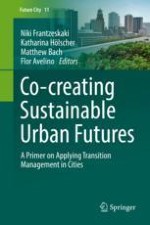This is a unique book that provides rich knowledge on how to understand and actively contribute to urban sustainability transitions. The book combines theoretical frameworks and tools with practical experiences on transition management as a framework that supports urban planning and governance towards sustainability. The book offers the opportunity to become actively engaged in working towards sustainable futures of cities. Readers of this book will be equipped to understand the complexity of urban sustainability transitions and diagnose persistent unsustainability problems in cities. Urban planners and professionals will build competences for designing transition management processes in cities and engaging with multidisciplinary knowledge in solution-seeking processes. The heart of the book marks the variety of very different local case studies across the world – including, amongst others, Rotterdam in the Netherlands, La Botija in Honduras, Sydney in Australia and Cleveland in the US. These rich studies give inspiration and practical insights to young planners on how to create sustainable urban futures in collaboration with other stakeholders.
The case studies and critical reflections on applications of transition management in cities offer food for thought and welcome criticism. They also introduce new lenses to understand the bigger picture that co-creation dynamics play in terms of power, (dis-)empowerment, legitimacy and changing actor roles. This will equip the readers with a deep understanding of the dynamics, opportunities and challenges present in urban contexts and urban sustainability transitions.
